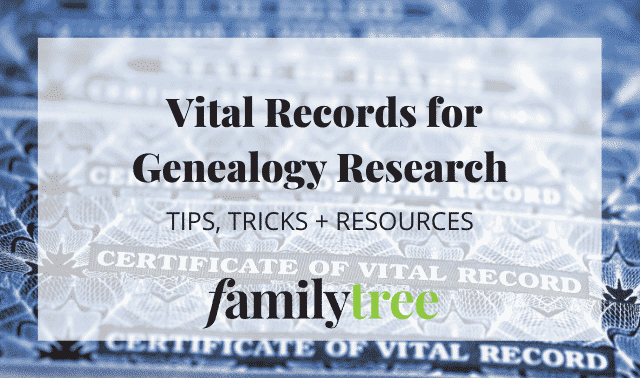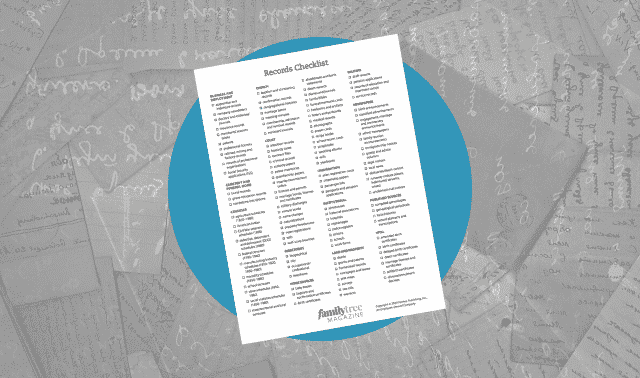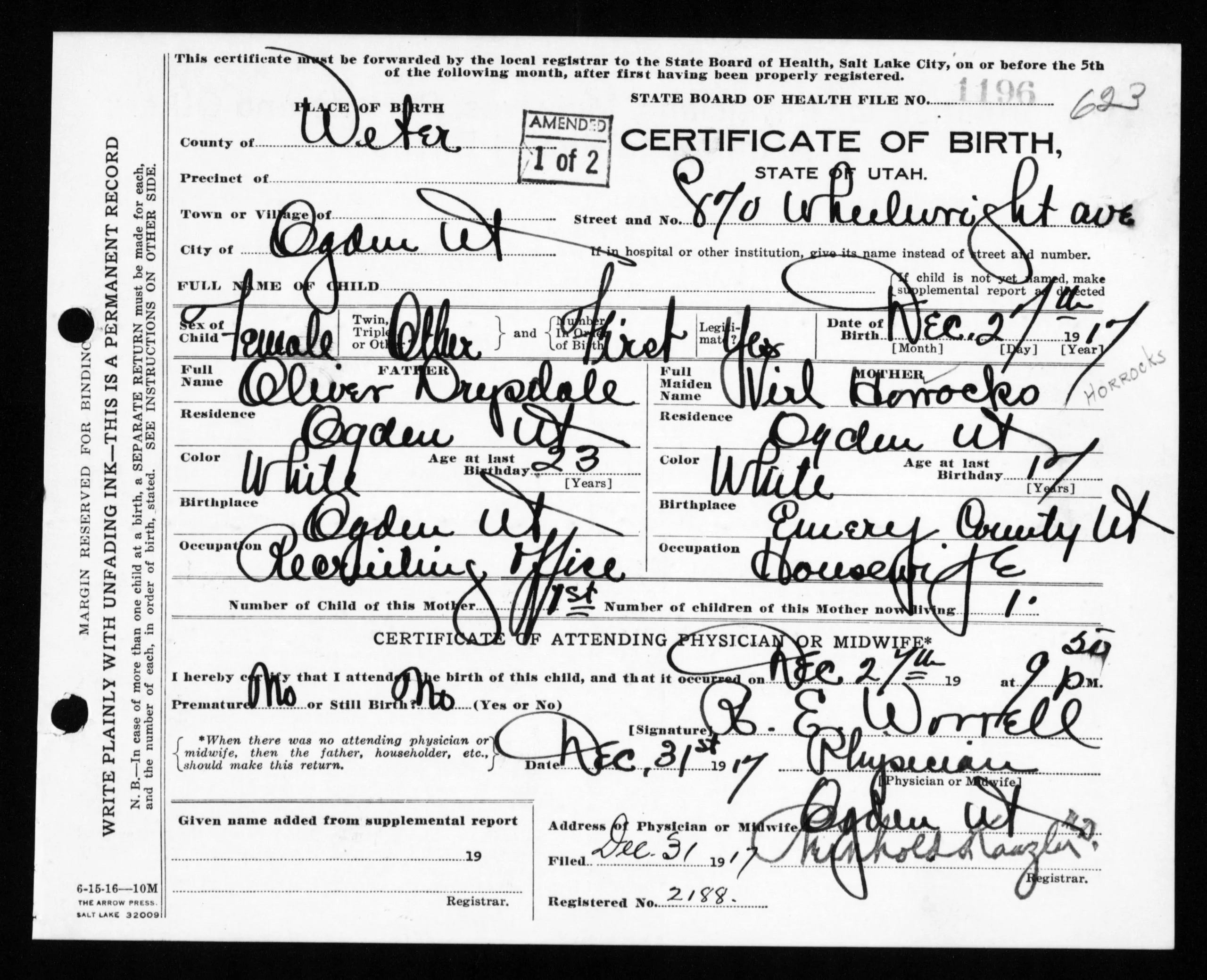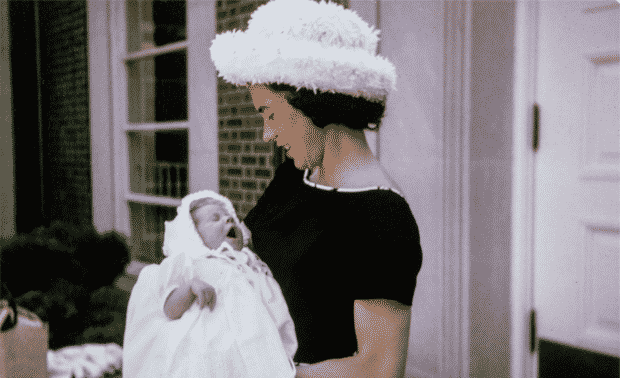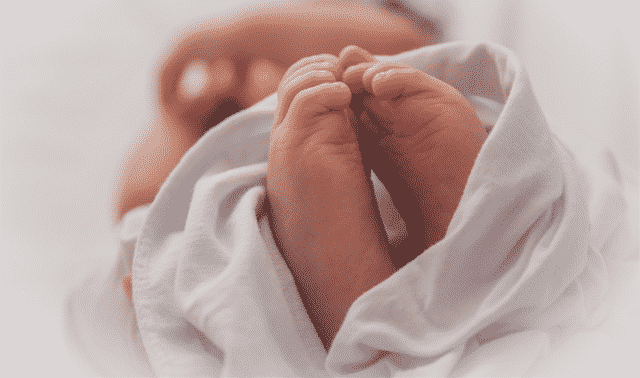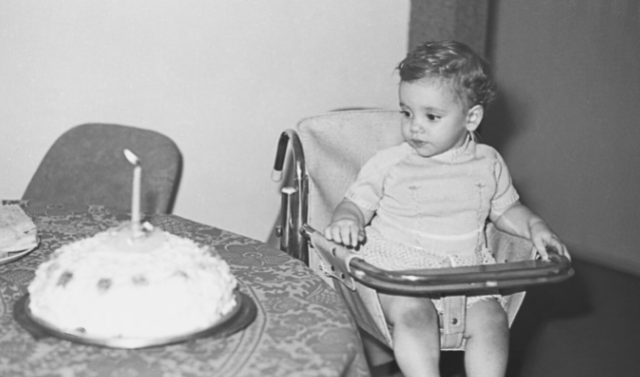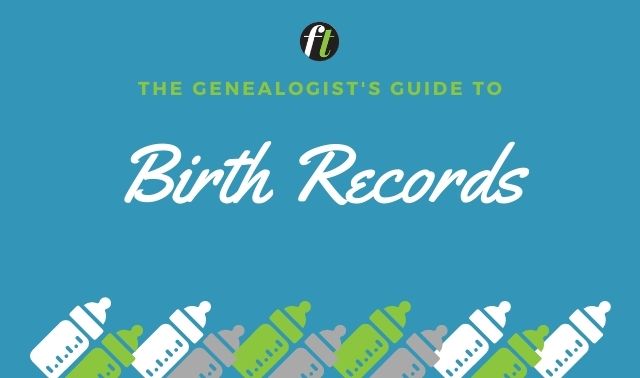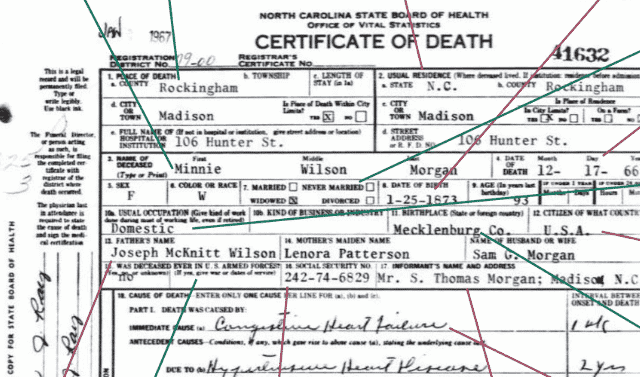
Just because your ancestor was born before his state routinely issued birth certificates doesn’t mean he never got one—he might have applied for a delayed birth certificate.
Like us, our forebears needed proof of birth date and place to receive passports, military pensions and more recently, Social Security benefits. But official birth certificates as we know them today haven’t been around all that long in some states—South Carolina, for example, didn’t start issuing them until 1915.
People born before the advent of statewide birth certificates could get delayed certificates in order to have official documentation of their birth date and place. To apply for a delayed birth certificate, an individual submitted a signed and notarized form to the state government, accompanied by multiple pieces of supporting evidence. Some acceptable forms of proof included:
- US census records
- family Bible records
- church birth or christening records
- school enrollment records
- voter registration form
- sworn affidavits by those present at the birth, such as parents, siblings, midwife or doctor; or people alive at the time of the birth who had immediate knowledge of the event.
Government documents had to be issued by an agency and certified by an official. Affidavits had to be witnessed and notarized. These record sources were abstracted on the application. The supporting documents stayed in the files of the state agency that issued the certificate. That means a delayed certificate will point you directly to those sources of evidence—as well as other clues described here.
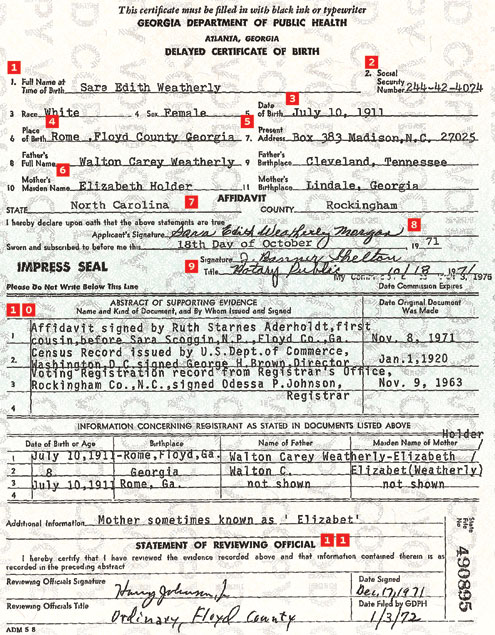
- The applicant provided his or her full name at birth. For women, this can confirm or reveal a maiden name.
- Use the Social Security number to check for an entry in the Social Security Death Index, then order the SS-5 application (see the May 2010 Family Tree Magazine Document Detective).
- The birth date listed was supported by documentation given by the applicant.
- The city, county and state of birth can help you find other records about the family.
- The mailing address of the person at the time of the application for the delayed certificate is an excellent clue for obtaining other records.
- The parents’ full names (including mother’s maiden name) and birthplaces will help you locate them—and their parents—in censuses and other records.
- The state and county in which the affidavit (application) was signed, coupled with present mailing address, pinpoint the person in a place and time.
- The applicant’s signature and date establish the precise date of the document.
- The notary public could be a friend, business associate or otherwise trusted person.
- The abstract descriptions of each piece of supporting evidence include the dates the supporting documents were created. These are excellent clues to the original documents and their locations.
- The reviewing official signed the document with his or her title, dated the document, and attested to the date of filing in the state health department or bureau of vital statistics.

